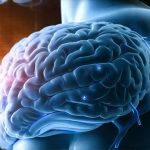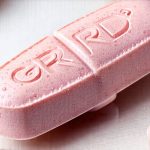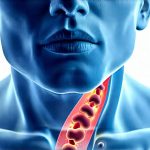Gastroesophageal reflux disease (GERD) is a surprisingly common condition, affecting millions globally. Most people associate it with heartburn, regurgitation, and perhaps difficulty swallowing – the classic symptoms we often see in advertisements for antacids. However, GERD’s reach extends far beyond these digestive complaints. Increasingly, individuals are reporting seemingly unrelated symptoms like tingling sensations in their arms or hands, leading to confusion and a quest to understand if there’s a connection. The link isn’t immediately obvious, but understanding the complex interplay between the digestive system, the nervous system, and potential complications arising from chronic acid exposure can shed light on why this happens and what steps one might take.
The reason for exploring these atypical symptoms is crucial because GERD, if left unmanaged, can lead to more serious health concerns. While tingling in the extremities isn’t typically the first sign of advanced disease, it can indicate a need for evaluation and potential adjustments to treatment or lifestyle. Many people dismiss these sensations as stress-related or attribute them to carpal tunnel syndrome without considering GERD as a possible contributing factor. This article aims to unravel this connection, offering a detailed look at how GERD might lead to tingling in the arms or hands, what mechanisms are potentially involved, and when seeking medical advice is essential. It’s important to remember that self-diagnosis can be misleading, and professional evaluation is always recommended for any concerning symptoms.
The Gut-Brain Connection and Referred Pain
The idea that digestive issues can manifest as neurological symptoms – like tingling in the limbs – rests heavily on the concept of the gut-brain axis. This isn’t some new age theory; it’s a well-established field of scientific study recognizing the bidirectional communication between the gastrointestinal tract and the brain. – The vagus nerve, a major cranial nerve, plays a pivotal role here, acting as a direct line of communication between the gut and the brain. – Inflammation or irritation in the esophagus due to GERD can stimulate this nerve, sending signals that are interpreted by the brain. Sometimes, these signals aren’t precisely localized, leading to referred pain – meaning pain felt in a location other than its source. This is why someone experiencing heartburn might also feel discomfort in their chest, or even their arm.
The mechanisms behind referred pain are complex but essentially involve the brain misinterpreting the nerve signals originating from the esophagus. The areas of the brain that process sensory information from the arms and hands are located close to those processing signals from the esophagus. This proximity can cause the brain to “confuse” the source of the sensation, leading to tingling or numbness in the extremities when there’s esophageal irritation. It’s not necessarily about a direct physical connection but rather how the brain perceives and interprets neurological input. Furthermore, chronic inflammation associated with GERD can contribute to nerve hypersensitivity – meaning nerves become more easily stimulated and respond with exaggerated sensations.
It is also important to consider that persistent acid reflux can lead to nutritional deficiencies over time, particularly if it interferes with nutrient absorption. Deficiencies in certain vitamins, like B12, are known to cause tingling and numbness in the extremities. While this isn’t a direct result of the acid itself, it’s a secondary effect stemming from the chronic digestive disruption caused by GERD. Essentially, the body struggles to absorb vital nutrients when the digestive process is consistently compromised. This highlights the importance of addressing GERD holistically, not just focusing on symptom management but also ensuring adequate nutrient intake. If you are concerned about how your diet may be impacting your health, consider reading can eating the same food to learn more.
Esophageal Spasm and Nerve Compression
Esophageal spasms are involuntary contractions of the esophageal muscles. They can be triggered by acid reflux or other irritants and cause significant discomfort, often mimicking heart pain. While typically felt in the chest, severe or frequent spasms can radiate to the arms and hands, potentially manifesting as tingling sensations. The spasm itself puts pressure on nearby nerves, disrupting their normal function and causing altered sensation. – These spasms aren’t always directly related to eating but can be exacerbated by certain foods or stress levels.
Another potential contributing factor is nerve compression. Chronic inflammation from GERD can lead to swelling around the esophagus and surrounding tissues. This swelling may impinge on nearby nerves, such as those that travel down the arm. It’s less about direct acid contact with the nerves and more about the inflammatory response creating physical pressure. Think of it like a pinched nerve – the compression disrupts signal transmission, leading to tingling, numbness, or even weakness. Identifying whether this is occurring requires careful medical evaluation, potentially including nerve conduction studies. If you suspect that acid reflux cause ear pain might be contributing to your symptoms it’s important to seek professional advice.
Finally, it’s crucial to differentiate these symptoms from other conditions that cause similar sensations. Carpal tunnel syndrome, thoracic outlet syndrome, and peripheral neuropathy are all possibilities that must be ruled out through proper diagnosis. A physician will consider your complete medical history, perform a physical examination, and may order specific tests to determine the underlying cause of the tingling in your arms or hands.
Hiatal Hernia & Diaphragmatic Irritation
A hiatal hernia occurs when part of the stomach protrudes up through the diaphragm – the muscle that separates the chest from the abdomen. This is a common complication of GERD and can significantly worsen reflux symptoms, creating a vicious cycle. The hernia itself can put pressure on nearby nerves or contribute to inflammation in the surrounding tissues, potentially leading to radiating discomfort. – A large hiatal hernia might even directly compress nerves as they pass through the diaphragm.
The diaphragm isn’t just a muscle for breathing; it also plays a role in nerve transmission and support. Chronic irritation from reflux, coupled with the presence of a hiatal hernia, can disrupt diaphragmatic function. This disruption can affect the way nerves signal to the arms and hands, resulting in tingling or numbness. The connection isn’t always straightforward, but it’s another potential pathway through which GERD symptoms can extend beyond the digestive system.
It is also important to understand that the presence of a hiatal hernia doesn’t automatically mean you’ll experience tingling in your extremities. Many people have small hiatal hernias with no noticeable symptoms. However, if you’re experiencing both GERD and tingling sensations, it’s essential to discuss this with your doctor to determine whether the hernia might be contributing factor and how best to manage it. Treatment options for a hiatal hernia range from lifestyle modifications and medication to surgical intervention in severe cases. It’s important to understanding the role of antacids when considering treatment options.
Managing GERD & Addressing Tingling Sensations
The first step in addressing tingling sensations potentially linked to GERD is, of course, managing the underlying acid reflux. This involves a multifaceted approach that combines lifestyle changes, dietary adjustments, and, if necessary, medication. – Lifestyle modifications include elevating the head of your bed, avoiding late-night meals, losing weight if overweight, and quitting smoking. – Dietary adjustments involve identifying and eliminating trigger foods – common culprits include caffeine, alcohol, chocolate, fatty foods, and spicy dishes. Consider the importance of meal timing to help manage your GERD symptoms.
Medications for GERD range from antacids to proton pump inhibitors (PPIs). Antacids provide temporary relief by neutralizing stomach acid, while PPIs reduce acid production over a longer period. However, long-term use of PPIs can have side effects, so it’s crucial to discuss the risks and benefits with your doctor. It’s also vital to address any nutritional deficiencies that may have developed due to GERD-related malabsorption. A healthcare professional can recommend appropriate vitamin supplements or dietary changes to restore nutrient levels.
If tingling persists despite effective GERD management, further investigation is necessary to rule out other potential causes. This might involve a neurological evaluation, including nerve conduction studies and electromyography (EMG), to assess nerve function. – A thorough physical examination will help identify any signs of nerve compression or peripheral neuropathy. Your doctor may also order blood tests to check for vitamin deficiencies or underlying medical conditions. Ultimately, accurate diagnosis is key to developing an appropriate treatment plan. It’s important to remember that treating the symptom without addressing the root cause – whether it’s GERD or something else – is unlikely to provide lasting relief. – If you notice your gut symptoms are affected by external factors, can music or light might be worth exploring.
It is critical to consult with a healthcare professional for any persistent or concerning symptoms. This article provides general information and should not be considered medical advice. A proper diagnosis and personalized treatment plan are essential for managing GERD and addressing related symptoms like tingling in the arms or hands. – When considering dietary changes, can eating the same food can impact your digestive health.


















